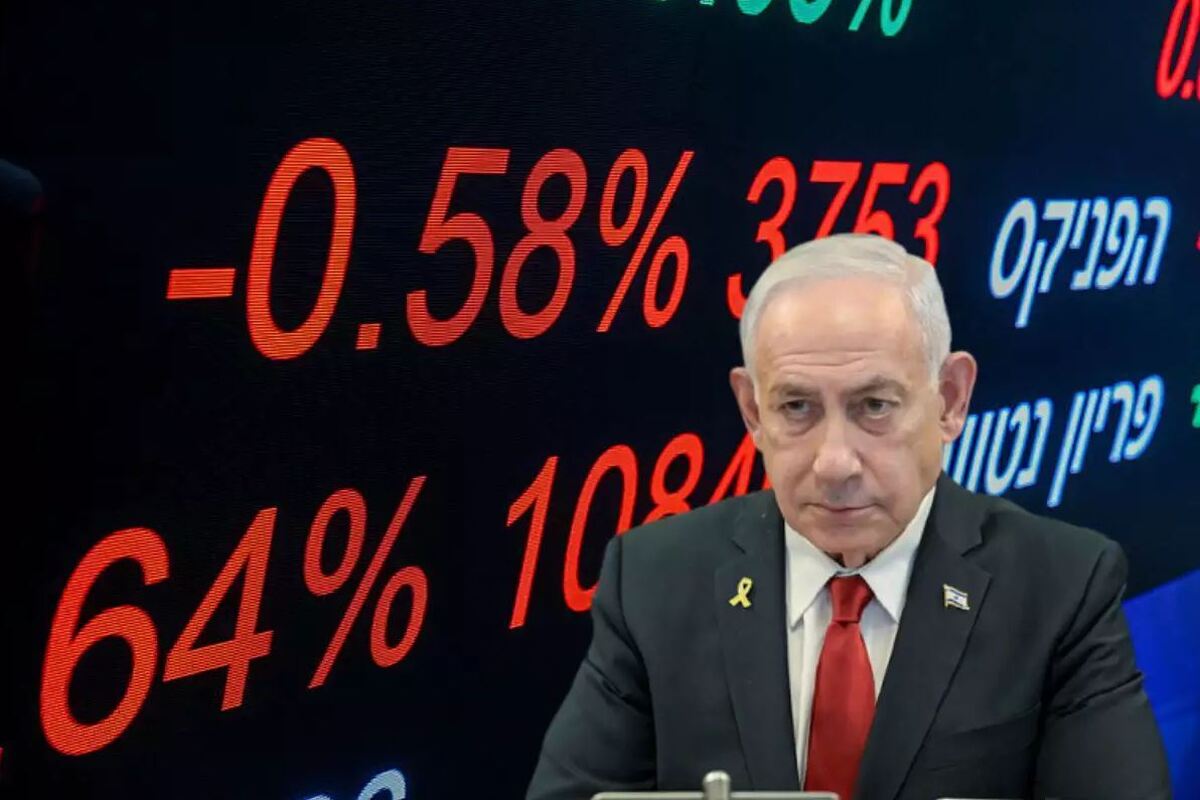
Statements by Benjamin Netanyahu, the Israeli Prime Minister, regarding severe isolation and the need to shift toward a closed economy shook the regime’s markets, particularly the stock exchange, like an earthquake.
Mizan –
According to Al Jazeera, Netanyahu admitted at a press conference to the economic isolation of the Israeli regime and emphasized the need for it to prepare for a self-sufficient economy.
Following these remarks, Israel’s stock markets plunged sharply, with key indices experiencing significant declines. The Tel Aviv Stock Exchange was hit with a major shock, as the Prime Minister acknowledged that the regime is drowning in political isolation and will be forced to turn toward a closed and self-reliant economy in the face of global isolation.
Meanwhile, the Israeli outlet Calcalist described the markets as bleak: the Tel Aviv 125 index dropped 1%, the oil and gas index fell 2.2%, defense industry stocks fell sharply, with Elbit down 2% and Next Vision down 4%.
On Monday, at the annual State Comptrollers’ Conference in occupied Jerusalem, Netanyahu admitted that Israel may soon face severe isolation. He said: “We may find ourselves in a situation where our arms industries are under siege.”
These statements revealed a lack of confidence in keeping the economy open and acted as a direct warning to investors about the beginning of a period of sharp economic decline.
The negative impact of his remarks spread to other sectors of the economy as well: shares of NewMed Energy dropped 2.4%, and Alma Infrastructure shares fell 12.9% after Bezeq canceled its acquisition deal—an issue that Calcalist described as a clear sign of declining confidence in the regime’s economy.
Experts believe this downturn is not temporary but rather a sign of a crisis in the economic approach shaped under the pressure of international isolation and restrictions on global markets.
According to Al Jazeera, Netanyahu attributed the market collapse to pressure from Muslim minorities in Europe, who are pushing their governments to adopt tougher stances, sanctions, and restrictions. He said such pressures have led to extensive sanctions and limitations against Israel, making arms imports increasingly difficult.
Critics, however, argue that the real cause of these problems lies in the cabinet’s ineffective policies and the mismanagement of the war, which have deepened the regime’s isolation.
The harshest criticisms have come from the technology sector. Israel’s High-Tech Association issued a statement saying: “High-tech is the main engine of economic growth, dependent on global markets and the trust of foreign investors. The current isolation poses a serious threat to our technological and military advantage. Instead of creating stability, Israel is moving toward dangerous isolation and a loss of competitiveness.” The statement mockingly asked: “Is this Netanyahu’s dream?”
Calcalist also reported grimly on the economic outlook, stating that the figures clearly show Israel’s economy heading into crisis, grappling with a budget deficit of more than 5%, declining GDP, and a loss of investor confidence both domestically and abroad.
While Netanyahu tries to persuade public opinion on the necessity of economic self-reliance, observers believe this approach reflects an inability to face reality, putting the Israeli regime on a path toward long-term recession and the collapse of vital sectors, including defense and technology.